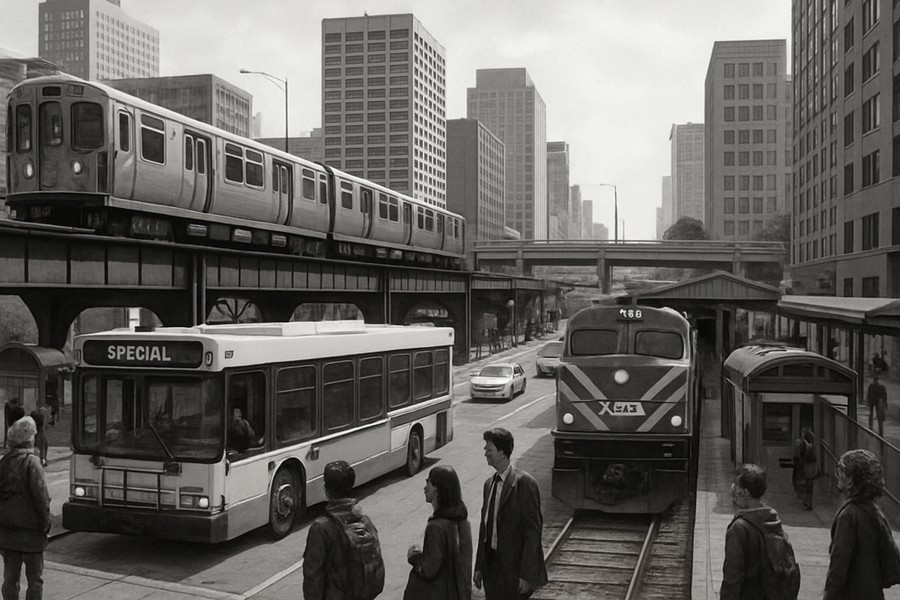
Major Overhaul in Public Transit System in Illinois Initiated by Democrats
With a looming financial crisis threatening the public transit system in Illinois, state Democrats recently pushed through an ambitious $1.5 billion plan. This plan aims to redirect funds from the state gas tax and road fund revenues into mass transit, potentially raise the sales tax in the Chicago region, and significantly increase fares on the Illinois Tollway.
A New Governing Body for Mass Transit
The bold move intends to transform the mass transit system in the Chicago region by establishing a new management body. This body will control the Chicago Transit Authority, Metra, and Pace. While the legislation has been praised for avoiding the large taxes that caused previous versions to fail, the decision to divert funds typically used for road construction has been heavily criticized by Republicans who feel they and their constituents are getting a raw deal.
Vote Results and Next Steps
The bill, supported primarily by Democrats, was passed by the Senate and the House and now waits for approval from the Governor. The new plan combines innovative strategies with proven methods to raise the necessary $1.5 billion. Advocates and some lawmakers believe this sum is crucial for the region’s transit system to function effectively.
Funding Sources and Concerns
The primary sources of funding for the project include $860 million from state tax revenue on motor fuel sales and $200 million from the interest earned on the state's road fund for mass transit uses. An additional $400 million would come from authorizing an increase of 0.25 percentage points to the sales tax issued by the Regional Transportation Authority for Chicago’s six-county area.
However, this shift of hundreds of millions of dollars from road work funding has sparked concerns. To counterbalance this, the bill also proposes a steep, 45-cent-per-toll increase on the Illinois Tollway. Despite these measures, Republicans, particularly those from downstate districts, argue that the plan unfairly diverts funds intended for road projects to meet Chicago-area transit needs, leaving them with insufficient funds for their own transit needs.
The Transformation Bill
Key negotiators have commented that this is not just another transportation bill, but a transformation bill. For the past 50 years, Illinois has been trying to fix transit one piece at a time. This ambitious plan seeks to create a unified system that will replace fragmentation with coordination.
Future Implications
Lawmakers hope that the new proposal will prevent job cuts and drastic service reductions as federal pandemic aid runs out. Without additional funding, there could be a 25% reduction in transit service starting next August. The budget deficit next year is projected to be about $230 million, and it is expected to balloon to more than $800 million in 2027 and beyond.
Structural Changes and New Initiatives
Besides addressing the funding cliff, the bill also aims to make structural changes to the transit systems. This includes replacing the current governing body with a new entity called the Northern Illinois Transit Authority. It will centralize fare-setting, service standards, and an infrastructure plan across the three transit agencies. Additionally, the bill proposes strategies to address public safety concerns along public bus and train lines and creates a transit ambassador program to assist riders.
Continued Controversy
Though the bill has been hailed by Democrats as a great start, Republicans argue that the bill unnecessarily spends more money than needed at the current time. They believe that a more collaborative approach would yield better results. However, Democrats argue that the bill represents a consensus after hours of testimony and they are determined to move forward.
